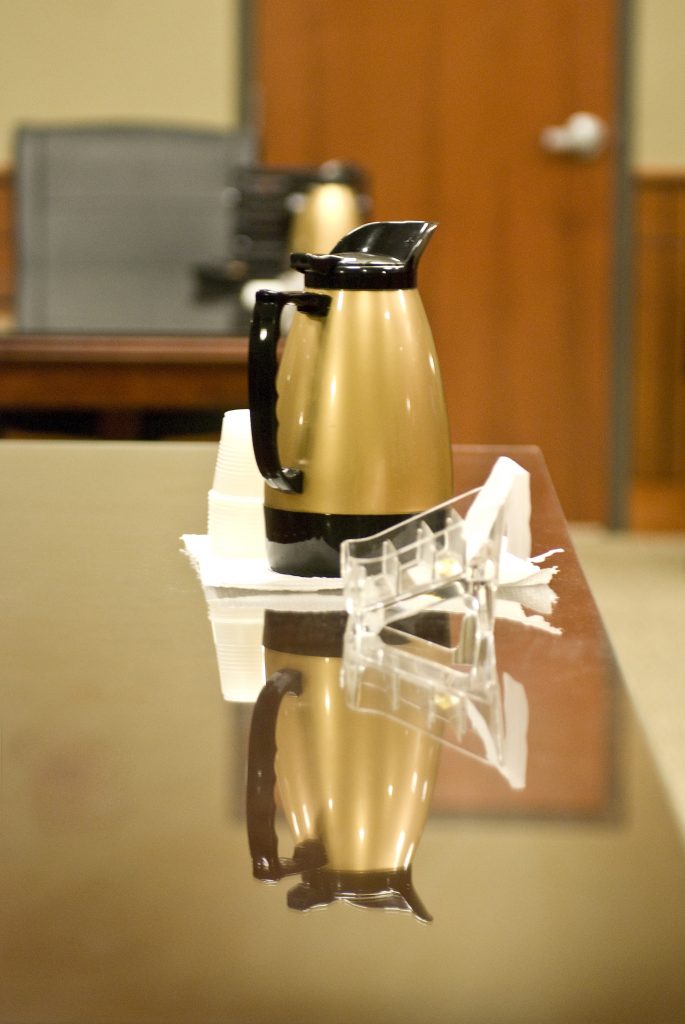 It is common for Louisiana residents who are injured due to another person’s negligence to seek financial compensation through a personal injury lawsuit. Typically, these types of lawsuits will pursue compensation to cover medical expenses that are incurred by the victim for the treatment of the injury they suffered, among other damages. That is exactly the approach that Destiny Guidry decided to take after she claimed that she was injured in an incident at a grocery store in Lake Charles back in 2011.
It is common for Louisiana residents who are injured due to another person’s negligence to seek financial compensation through a personal injury lawsuit. Typically, these types of lawsuits will pursue compensation to cover medical expenses that are incurred by the victim for the treatment of the injury they suffered, among other damages. That is exactly the approach that Destiny Guidry decided to take after she claimed that she was injured in an incident at a grocery store in Lake Charles back in 2011.
According to Ms. Guidry, she was injured on June 14, 2011, when she was struck by a stock cart that was loaded with canned goods. The stock cart was under the control of a store employee, Kenneth Wyant. Mr. Wyant did not deny that there was an incident in which he claimed he had to stop the stock cart suddenly, resulting in some cans potentially hitting Ms. Guidry on the leg. But, he did deny that Ms. Guidry was injured in any significant way. Ms. Guidry, on the other hand, claimed that she suffered a serious injury to her ankle in this incident, resulting in a trip to the emergency room four days later on June 18, 2011, and again on June 28, 2011. Then, in March of 2013, 21 months after the incident in the grocery store, Ms. Guidry ultimately had surgery on her ankle. Ms. Guidry filed a personal injury lawsuit against the grocery store and the store employee, Mr. Wyant. The case was tried before a jury.
The first question for the jury was whether the store employee, Mr. Wyant, was at fault for the incident that occurred at the grocery store on June 14, 2011. The jury answered “no” to this question, ending deliberations. Before the case was dismissed with prejudice, i.e., the claim was foreclosed from ever being brought in court again, Ms. Guidry asked the Trial Court for a “judgment notwithstanding the verdict.” This is a legal procedure whereby a party asks the court to enter a judgment that is different from the jury’s conclusion on the basis that the jury made a manifest error in reaching its conclusion. In this case, Ms. Guidry claimed that the manifest error was the jury’s finding that Mr. Wyant was not at fault for the incident on June 14, 2011, especially since Mr. Wyant had not denied that some type of incident had in fact occurred, which was supported by corroborating testimony. The Trial Court denied Ms. Guidry’s motion and she appealed to the Louisiana Third Circuit Court of Appeal.
 Louisiana Personal Injury Lawyer Blog
Louisiana Personal Injury Lawyer Blog


 When a products-related injury occurs, multiple parties may be at fault. In litigating personal injury claims, among the most important legal questions, are whom may the plaintiff recover from, if anyone, and under what theory of liability. The following case provides a good discussion of some typical theories of liability involved in products-related injury cases.
When a products-related injury occurs, multiple parties may be at fault. In litigating personal injury claims, among the most important legal questions, are whom may the plaintiff recover from, if anyone, and under what theory of liability. The following case provides a good discussion of some typical theories of liability involved in products-related injury cases. Court litigation involves the filing of multiple court submissions, and of course, deadlines. Procedural rules dictate deadlines for when certain motions need to be brought. Effective attorneys stay informed of these deadlines. Untimely filings generally result in a denial of legal relief by a court. Courts must be able to timely dispose of disputes in order to prevent a backlog of cases clogging up the court system. The following decision of the Louisiana Third Circuit Court of Appeal demonstrates the importance of deadlines in litigating claims.
Court litigation involves the filing of multiple court submissions, and of course, deadlines. Procedural rules dictate deadlines for when certain motions need to be brought. Effective attorneys stay informed of these deadlines. Untimely filings generally result in a denial of legal relief by a court. Courts must be able to timely dispose of disputes in order to prevent a backlog of cases clogging up the court system. The following decision of the Louisiana Third Circuit Court of Appeal demonstrates the importance of deadlines in litigating claims. Have you ever suffered personal injury from an accident while traveling to or from work? Generally, pursuant to the Louisiana Workers’ Compensation Act employers are not responsible for injuries sustained by employees while traveling to or from work because these injuries are not considered to have occurred within the course of employment. This is known as the “going-and-coming” rule, under which the employment relationship is considered suspended from the time the employee leaves his or her workplace. However, there are certain exceptions to this rule that allow a claimant to recover even though the injury was sustained while traveling to or from work. The following case illustrates one such exception: if the accident occurred on the employer’s premises, the employee may be covered under workers’ compensation laws.
Have you ever suffered personal injury from an accident while traveling to or from work? Generally, pursuant to the Louisiana Workers’ Compensation Act employers are not responsible for injuries sustained by employees while traveling to or from work because these injuries are not considered to have occurred within the course of employment. This is known as the “going-and-coming” rule, under which the employment relationship is considered suspended from the time the employee leaves his or her workplace. However, there are certain exceptions to this rule that allow a claimant to recover even though the injury was sustained while traveling to or from work. The following case illustrates one such exception: if the accident occurred on the employer’s premises, the employee may be covered under workers’ compensation laws. When an individual employs tactics to instill humiliation, fear, and emotional distress in another person, they should be held accountable for the damages they cause. Fortunately, Louisiana legislators agree and have provided for exactly that under its civil code. See
When an individual employs tactics to instill humiliation, fear, and emotional distress in another person, they should be held accountable for the damages they cause. Fortunately, Louisiana legislators agree and have provided for exactly that under its civil code. See  When an employee is injured on the job they often have extensive medical bills and less money to pay those bills because they may not be able to work. While workman’s compensation, insurance, and disability benefits are available to cover those costs, there is another form of compensation available to those who are injured as a result of negligence or other bad acts. The injured party can file a lawsuit against those responsible. Of course, there are often questions surrounding who is in fact legally responsible, e.g., for maintenance of a job site, and it takes an experienced lawyer to navigate such complicated legal questions.
When an employee is injured on the job they often have extensive medical bills and less money to pay those bills because they may not be able to work. While workman’s compensation, insurance, and disability benefits are available to cover those costs, there is another form of compensation available to those who are injured as a result of negligence or other bad acts. The injured party can file a lawsuit against those responsible. Of course, there are often questions surrounding who is in fact legally responsible, e.g., for maintenance of a job site, and it takes an experienced lawyer to navigate such complicated legal questions. People get car insurance to protect themselves in the event of a car accident. It is thus important that one takes care to research and consider what insurance plan is best for one’s needs. Liability insurance is designed to protect a person who owns or drives a vehicle from the costs of a lawsuit that might happen if that vehicle is in an accident. Insurance contracts define the scope of what sort of vehicles or potential plaintiffs will be considered covered under the policy. Generally, courts prefer to preserve the “
People get car insurance to protect themselves in the event of a car accident. It is thus important that one takes care to research and consider what insurance plan is best for one’s needs. Liability insurance is designed to protect a person who owns or drives a vehicle from the costs of a lawsuit that might happen if that vehicle is in an accident. Insurance contracts define the scope of what sort of vehicles or potential plaintiffs will be considered covered under the policy. Generally, courts prefer to preserve the “ Lawsuits can be quite complicated, even for seasoned attorneys. However, when one is representing himself, the complications can be even more complex. Especially, when the law does not support your claim. The following case demonstrates the need for an experienced attorney when it comes to constitutional rights violation allegations and litigation.
Lawsuits can be quite complicated, even for seasoned attorneys. However, when one is representing himself, the complications can be even more complex. Especially, when the law does not support your claim. The following case demonstrates the need for an experienced attorney when it comes to constitutional rights violation allegations and litigation. Ponzi schemes ultimately come to an end and unfortunately cause a lot of pain, suffering, and litigation. The Stanford Ponzi scheme is no exception. As demonstrated in the following case, the complex nature of such schemes demonstrates the need for excellent legal representation if you are the victim of an unscrupulous Ponzi schemer.
Ponzi schemes ultimately come to an end and unfortunately cause a lot of pain, suffering, and litigation. The Stanford Ponzi scheme is no exception. As demonstrated in the following case, the complex nature of such schemes demonstrates the need for excellent legal representation if you are the victim of an unscrupulous Ponzi schemer. The commencement of pro se litigation, meaning without attorney representation, is no easy task. A common aspect of pro se litigation involves a request to proceed in forma pauperis (IFP). A granted IFP request allows a pro se litigant to have the prepayment of fees or costs waived.
The commencement of pro se litigation, meaning without attorney representation, is no easy task. A common aspect of pro se litigation involves a request to proceed in forma pauperis (IFP). A granted IFP request allows a pro se litigant to have the prepayment of fees or costs waived.